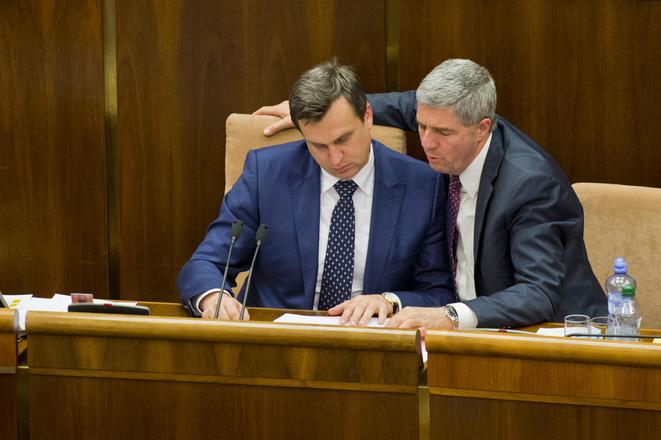Europe is in a funk over the rise of extremist political parties. The situation in Slovakia suggests that democracy may not be quite as sickly as it is sometimes portrayed.
When, last month, Austria succeeded in failing to elect as president, by the most precarious of margins, Norbert Hofer of the far-right Freedom Party, Europe, we were told, breathed a sigh of relief. (Apart, one supposes, from the 49.65 percent of Austrian participants who voted for him.)
When, in March, the People's Party – Our Slovakia, this country's very own branch of the toothbrush-moustache appreciation society, rocketed into parliament, we were shocked – shocked! – that a bunch of unapologetic thugs could attract such support.
There are legitimate reasons to fear such movements. Their commitment to democracy is uncertain: their direct political ancestors treated it merely as a stepping stone to total power. And even while they participate in the democratic process, their language threatens to pervert the general political debate by normalising hatred and exclusion.
But people can hardly claim to be unaware of the first danger: the precedents are clear and, for now, unlikely to be repeated. And if a large number of our fellow citizens hold views that are repugnant to us, well that is the uncomfortable truth that democracy is in part designed to reveal.
If we assume that democracy and free elections represent the settled system of government in this region, and that it can be defended, there are some rather more hopeful signs.
Because the iron law of democratic politics is that elections are won and lost in the centre. Judging where the centre lies, and moving towards it, is the mark of a successful politician.
This was brought home to me recently by a conversation I had with a former communist-era dissident, a man of profoundly liberal-democratic principles and unimpeachable (Velvet) revolutionary credentials. He told me that he had been approached by, and had willingly offered advice on governing to, Slovak National Party (SNS) leader Andrej Danko.
Now the SNS were until quite recently Slovakia's most reprehensible party (no mean feat): only last month, two of the party's former ministers were among five ex-officials charged over a grossly corrupt public tender during the first Fico government.
So it came as something of a surprise to learn that the SNS under Danko has had the foresight to consult a respected democrat, someone who is no great fan of theirs, as part of an effort to reinvent themselves. Their strong result in the March election is in part a vindication of this approach.
We shall see if the SNS has really changed its spots, but it suggests that they do have a more enduring commitment to democracy than anyone might reasonably have suspected even five years ago.
Danko's openness over his recent hospital treatment, which contrasted very favourably with Prime Minister Robert Fico's stonewalling, is a further encouraging sign that as one extreme party emerges, another is maturing and migrating towards the centre, where real power lies.
Maybe, just maybe, democracy is actually working.
Meanwhile, spare a thought for one rather unfortunate victim of this process.
The battle for the centre ground currently underway is happening in part because its previously undisputed champion, Mr Fico, seems to have lost his touch.
Despite furious attempts to look statesmanlike, Miroslav Lajčák must be cursing the timing of his boss, who chose the same day that the cabinet endorsed his bid for the UN top job to declare that there is no place for Islam in Slovakia.
Mr Lajčák must now be hoping that other UN member states (of whom Muslim-plurality countries, at a rough tally, account for one quarter) do not reciprocate by deciding that there is no place for the ally of an Islamophobe in the UN Secretary-General's office.



 Andrej Danko (l) and Béla Bugár (r) (source: TASR)
Andrej Danko (l) and Béla Bugár (r) (source: TASR)